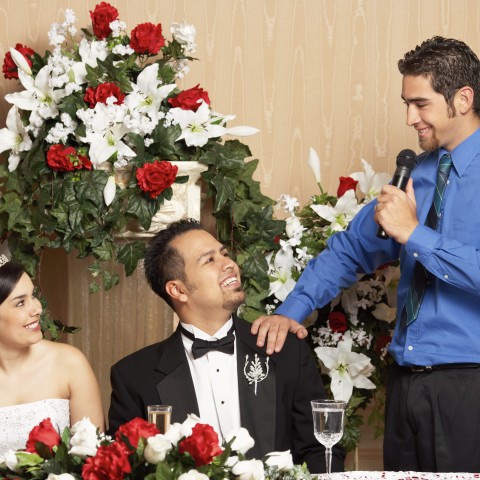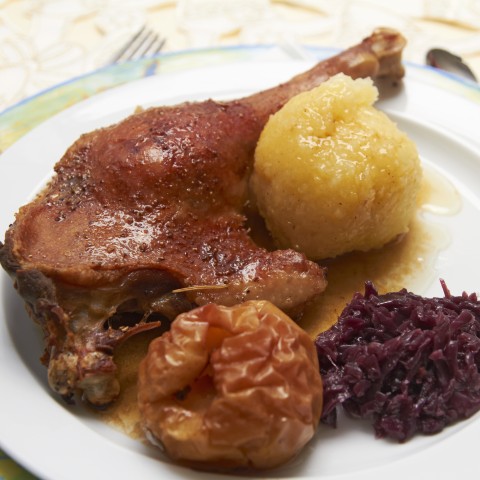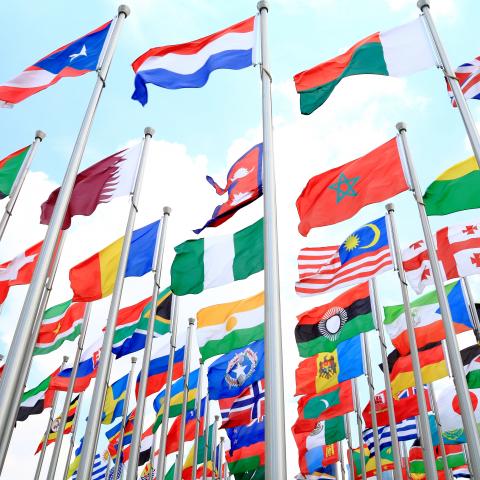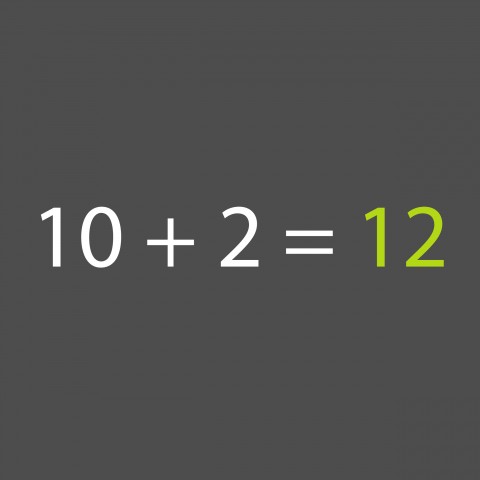
Did you know that Germans aren’t that punctual?
They have a reputation for always being on time, sure.
But the Deutsche Bahn, the German train system, has more delayed trains than you might imagine.
Given that fact, and all the other pressures of modern life, you’ll need to be quite aware of the time in Germany. Do you know how to ask for it?
Or, perhaps, how to talk about time in general?
This article is more than just a phrasebook for telling time in German. Time touches a lot of facets of everyday life and language, and the phrases you learn here are things that you can carry over into the rest of your German studies.
 Table of Contents
Table of Contents
- Asking Others for the Time
- Hours in German
- Minutes and Seconds
- Describing Lengths of Time
- When Did it Happen?
- International Time in German-Speaking Countries
- Time in German Idioms
- Conclusion
1. Asking Others for the Time

Actually asking people the time in German is dead simple. That said, asking “What time is it?” in German does use a rather different structure than English.
- Entschuldigung, wie spät ist es jetzt?
“Excuse me, what time is it?”
Here, you’re actually saying “How late is it?” To an English speaker, this might seem like a weird thing to ask, especially in the morning, but in Germany it’s totally fine.
Another equally common way of asking about time in German is with this phrase:
- Wieviel Uhr haben wir?
“What time is it?”
This is closer to the English question, in a broad sense. If you think about it, saying “what time” doesn’t make a whole lot of sense anyway. In German, this translates to “How many hours do we have?” This at least fits logically into the whole counting-hours thing that our clocks do.
Just as in English, you can also make any question to a stranger slightly more polite by adding “Do you know” in front of it. In German, this actually reverses the word order of the sentence, so we end up with this phrase:
- Wissen Sie, wie spät es jetzt ist?
“Do you know what time it is now?”
Speaking of hours, the next step we’ve got to take is to understand the answer. No good knowing the question if we can’t!
2. Hours in German

When telling time in German, imagine that the German language has gone and given names to each of the hours on the clock face. Fortunately for you, these are very boring names.
Each name is just the number, from one to twelve, and often from one to twenty-four.
- Es ist vier Uhr.
“It’s four o’clock.”
- Jetzt ist es sieben Uhr.
“It’s seven o’clock.”
Remember that the Uhr here is mandatory. There are some cases where you can drop it, but not right now. You can’t say the equivalent of “It’s four.”
In Germany, you’ll always see the twenty-four-hour clock used for schedules, signs, and other official information. Many people continue to use the twelve-hour clock when speaking to one another, however.
This requires an equivalent of what we call “a.m.” and “p.m.” in English. Where English speakers borrow the terms from Latin, German speakers use native German words here: vormittags and nachmittags.
- Es ist knapp drei Uhr nachmittags.
“It’s almost three p.m.”
Here, German is rather flexible, as you could sub in morgens (“morning”), abends (“evening”), mittags (“afternoon”), or nachts (“nighttime”).
- Es ist zwei Uhr nachts.
“It’s two at night (two a.m.).”
3. Minutes and Seconds

The next logical step here is to learn how to combine talking about hours with talking about minutes. After all, there’s only 24 minutes a day when the time is an hour sharp!
- Es ist zwei Uhr zwanzig.
“It’s two-twenty.”
Simple as that! And in fact, this is the place mentioned earlier where you don’t exactly need to say the word Uhr each time.
- Es ist achtzehn fünfzig.
“It’s 18:50 (six-fifty p.m.).”
In German, there are several different ways to divide the hour so that you’re not left reading off the numbers as if from a clock.
The word halb in German looks an awful lot like “half,” but here’s one thing that really trips a lot of learners up. If you hear someone say halb sieben, it doesn’t mean “half past seven.” Instead it means “halfway to seven,” or six-thirty!
When it comes to quarter-hours, the word you need is das Viertel, which really refers to a quarter of anything, not just an hour. You’ll also need the prepositions vor (“before”) and nach (“after”). German prepositions can get rather tricky, but fortunately they’re easy as pie when telling time!
- Es ist Viertel vor sechs.
“It’s a quarter to six (five forty-five).”
- Es ist Viertel nach zehn.
“It’s a quarter after twenty (ten-fifteen).”
Sometimes, you may hear people just saying:
- Viertel zwölf.
“Quarter twelve.”
This is actually something that many German people get confused with, since whether it’s used or not depends on the region. Even though not everyone is using it, it’s still seen as a common way to tell the time in German. If you can master this, you’ll sound like a real native.
In this particular example, viertel zwölf means eleven-fifteen. Confusing, eh? The idea behind telling the time like this is to give the information that a quarter of an hour passed until twelve. Imagine having a round cake, and only a quarter is left. You’d say:
- Ein Viertel der Torte
“A quarter of the cake”
Now exchange “cake” with zwölf, and you’ll have a quarter of twelve, which is eleven-fifteen. You can also say:
- Drei viertel zwölf
“Three quarters of twelve”
On the other hand, you could interpret this as eleven forty-five, because three quarters of twelve have already passed.
Don’t worry if you don’t get it straight away. As mentioned before, many Germans in the western part of the country don’t understand this either.
That should just about cover it! However, learning to tell the time in German is only half the battle. We can use time words and expressions to describe a lot more!
4. Describing Lengths of Time

What if you’re not being specific at all? How would you guesstimate how long something takes?
- Wie lange wird es dauern?
“How long is it going to take?”
- Wie lange bis wir fertig sind?
“How long until we’re finished?”
Those are the kind of questions everyone asks, from kids on long car rides to bosses looking over your shoulder at your project.
If you can, giving a nice vague answer can be an excellent way to sound natural and push off your real answer, as the situation may require.
- Es wird ungefähr ein paar Stunden dauern.
“It will take about a couple of hours.”
- Es wird wahrscheinlich zwei bis drei Minuten dauern.
“It’ll probably take about two to three minutes.”
As you can see, all you really need for talking about time in German is a couple of key phrases to slip into the sentence patterns you’re already familiar with.
Or is it?
5. When Did it Happen?

Perhaps those vague answers don’t cover your needs, natural though they are. At some point, you’ll have to know how to say what time certain things take place.
There’s another preposition you need to handle here: um. Normally, this means “around,” but when referring to time, it means “at.”
- Das Konzert findet um zwölf Uhr statt.
“The concert will take place at twelve.”
Remember that when using time expressions, German allows you to use the simple present tense. For other tenses, the time expressions stay the same as the verbs conjugate.
- Wann ist das geschehen?
“When did it happen?”
- Es hätte um acht Uhr zwanzig anfangen sollen.
“It should have started at eight-twenty.”
6. International Time in German-Speaking Countries

The way most learning resources talk about it, you could be forgiven (perhaps) for thinking they only speak German in Germany. Some extra points for Austria and Switzerland.
Beyond those countries, German is even official in parts of Italy, Liechtenstein, and Belgium. It’s also spoken by minority communities of German speakers in Canada, the USA, Romania, Namibia, Brazil, and Argentina!
Naturally, to describe these communities and facilitate communication between them, one has to take the time difference into account.
- Hat Belgien die selbe Zeitzone als Österreich?
“Is Belgium in the same time zone as Austria?”
Even if the German-speaking communities aren’t directly contacting one another, German is studied around the world thanks to the economic power of German-speaking countries in Europe.
Fortunately, all you have to do when asking time in German in a certain place is to use the preposition in, exactly like in English.
- Wie spät ist es in Brasilien?
“What’s the time in Brazil?”
7. Time in German Idioms

It just so happens that a lot of the time-related idioms and sayings that you already know in English have perfect, nearly word-for-word equivalents in German. These, for instance, work flawlessly:
- Zeit ist Geld.
“Time is money.”
- Der frühe Vogel fängt den Wurm.
“The early bird catches the worm.”
- Besser spät als nie.
“Better late than never.”
However, there are some that we don’t have in English, common though they may be in German:
- Kommt Zeit, kommt Rat.
“Time passes and advice comes.”
This could be considered a loose translation of “Good things come to those who wait.” However, Rat here is more like “advice” or “a solution,” and so this idiom is really telling you not to be hasty about solving your problems.
- Er ist pünktlich wie die Maurer.
“He’s as punctual as a builder.”
English-speakers don’t typically stereotype construction workers as punctual. What gives?
This is actually based on the end of the work day. As the story goes, builders pay very close attention to the very last minute that they have to work, and as soon as that whistle blows, they’re off and away.
By the way, for more German idioms and expressions, check out Essential Idioms That Will Make You Sound Like a Native Speaker!
8. Conclusion
By this point, we’ve really only scratched the surface of what’s possible in German when it comes to time and time expressions. Did you learn something new? Let us know in the comments!
The important thing to realize is that you can’t pick it all up from reading guides, and certainly not in English. Some of the examples in this article were taken from sources that are one hundred percent in German.
That’s the key—to actually use the language and learn things with German, not just about German.
And what better tool to help you on your way than GermanPod101? As you might expect, the podcast is our key feature, offering hundreds of lessons at a great price for any skill level.
You can also benefit from the vocabulary resources, grammar guides, and cultural articles like this one. There’s no time to lose. Sign up now and start your journey to German fluency! To begin, why not check out our article on reading dates on the German calendar?
Happy German learning! 🙂








































































































